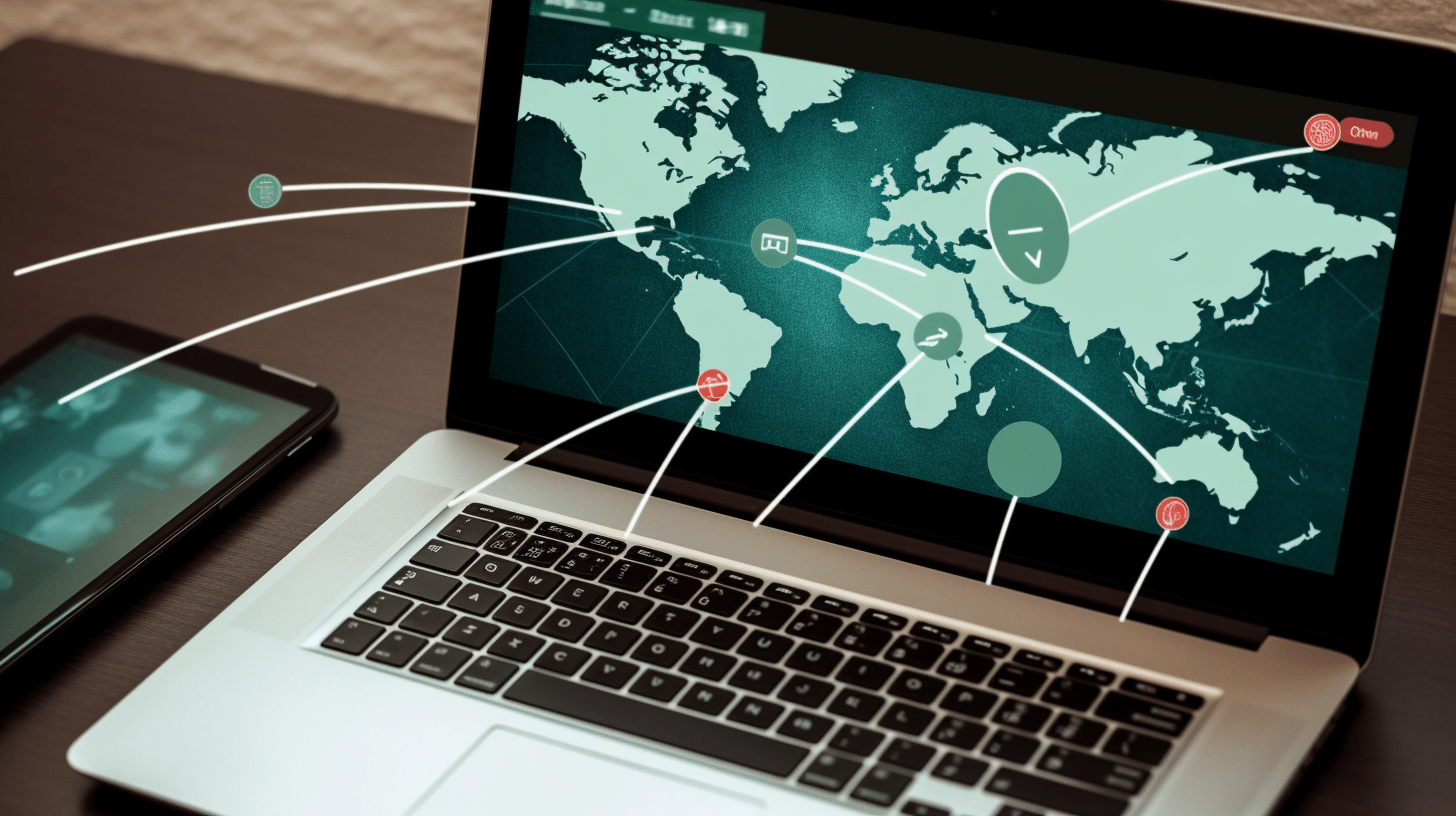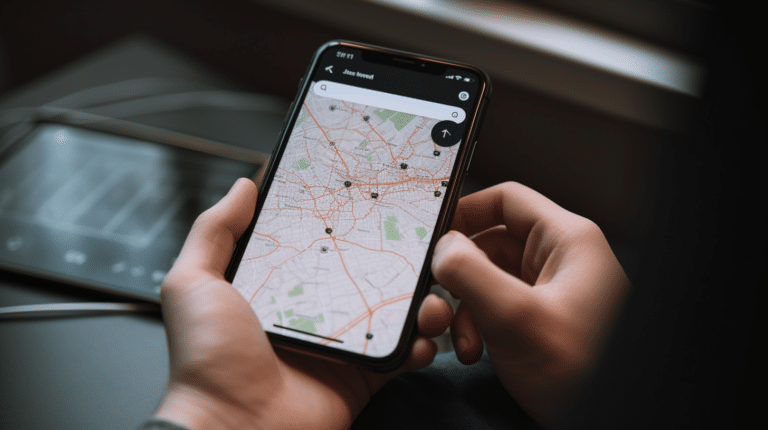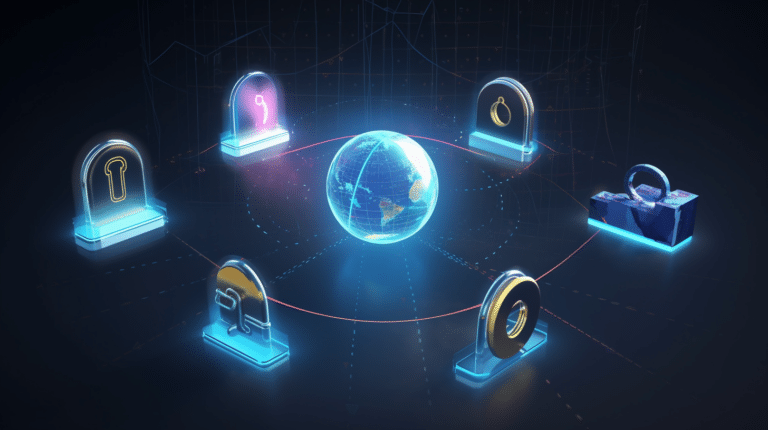As internet security and privacy concerns continue to grow, many individuals and businesses turn to virtual private networks (VPNs) for protection. VPNs work by creating an encrypted tunnel between your device and a remote server, effectively masking your IP address and helping you maintain anonymity online. However, not everyone is willing or able to pay for a premium VPN service, leading them to consider free VPN alternatives.
Free VPNs do exist and offer some level of protection, but they often come with limitations and trade-offs. Users of free VPNs may experience slower internet speeds, limited server options, and restrictions on data usage. Moreover, some free VPNs have been criticized for collecting user data and displaying intrusive advertisements in order to generate revenue. Evaluating the balance between cost and performance is essential when considering if a free VPN is suitable for your needs.
Key Takeaways
- Free VPNs provide basic online privacy and security, but with certain limitations.
- Performance and server options may be restricted compared to paid VPN services.
- Users should be cautious of potential privacy risks, such as data collection and ads, associated with some free VPNs.
Understanding VPNs
What is a VPN?
A Virtual Private Network (VPN) is a tool that enhances your online privacy and security by creating an encrypted connection between your device and a VPN server. By using a VPN, you can protect your sensitive data and hide your real IP address, making it more difficult for third parties to track your online activities.
How VPNs Work
A VPN works by creating an encrypted tunnel between your device and a VPN server. When you connect to a VPN, your internet traffic is routed through this tunnel, effectively hiding it from your ISP, hackers, and other prying eyes. Additionally, your real IP address is replaced with one from the VPN server, which can help you bypass geo-restrictions and access regionally blocked content.
Role of VPNs in Internet Privacy
VPNs play a crucial role in protecting your online privacy. By encrypting your data and masking your IP address, a VPN helps prevent unauthorized access to your personal information and reduces the chances of online tracking by third parties. Although a VPN cannot guarantee complete anonymity, it significantly enhances your privacy, especially when using public Wi-Fi networks or visiting websites with weak security measures.
Free VS Paid VPNs
Price Difference
When comparing free VPNs and paid VPNs, the most obvious difference is the price. Free VPNs offer their services at no cost, while paid VPNs require a subscription fee. Some providers offer a free trial or a limited free tier, such as ProtonVPN, Windscribe, and Hide.me. On the other hand, premium VPNs may come as monthly, annual, or multi-year subscription plans, often with discounted prices through coupons or special deals.
Capability
In terms of capability, paid VPNs generally offer better performance and features. For example, a premium VPN may offer 256-bit data encryption, while a free VPN might only provide 128-bit encryption. Additionally, paid VPNs typically have a larger server network and faster connection speeds, which can positively impact your browsing experience.
Some common differences between free and paid VPNs include:
- Encryption strength: Paid VPNs usually provide stronger encryption.
- Server network: Paid VPNs tend to have more servers and server locations to choose from.
- Connection speed: Premium VPNs generally offer faster and more reliable connections.
- Device compatibility: Paid VPNs often support more devices and platforms compared to free ones.
- Customer support: Premium VPNs typically provide better customer service and assistance.
Privacy Issues
Although the primary purpose of using a VPN is to enhance your privacy and security, not all VPNs are created equal. Free VPNs might pose certain privacy issues due to their business model. As they do not generate revenue from subscriptions, some free VPN providers might resort to intrusive practices like tracking user activities or injecting ads into websites, which can compromise your privacy and security.
In contrast, paid VPNs have a more transparent revenue model, usually resulting in a stronger commitment to user privacy. Premium VPNs are more likely to have a strict no-logs policy, advanced security features, and better overall privacy protection. For this reason, opting for a paid VPN often provides a higher level of confidence in the provider’s dedication to safeguarding your data.
To sum up, free VPNs might be a viable option for occasional use or those on a tight budget. However, if you require more security, comprehensive features, and better performance, investing in a premium VPN service is usually worth the expense.
Security Concerns with Free VPNs
Data Encryption
Free VPNs may not provide the same level of data encryption as their paid counterparts. Data encryption is an essential aspect of a VPN’s security, as it helps to protect your internet traffic from being intercepted or decoded by malicious third parties. While some free VPNs may use secure encryption protocols, others may opt for weaker alternatives due to lower costs or resource limitations, which can put your data at risk. To ensure the safety of your information, it’s crucial to choose a VPN with strong encryption standards.
Malware Risks
Another concern with free VPNs is the potential risk of malware infections. Some free VPN providers have been associated with distributing malware through their services, compromising the security of their users’ devices. This not only exposes users to potential data loss or theft, but it can also lead to greater security vulnerabilities in the system. To mitigate this risk, consider researching a VPN provider’s reputation and looking for any reports or reviews mentioning malware before deciding to use their service.
Privacy Policies
A critical aspect of using a VPN is to protect your privacy while browsing the internet. However, not all free VPN providers have trustworthy privacy policies in place. Some free VPN services may log your browsing data or sell your information to third parties, defeating the purpose of using a VPN in the first place. When choosing a free VPN, it’s important to carefully read and understand their privacy policy to ensure that your data is protected and not being exploited for commercial gain.
Performance of Free VPNs
Internet Speeds
Free VPNs often struggle with providing optimal internet speeds, as they tend to have limited resources and servers compared to their paid counterparts. While some free VPNs are able to maintain decent connection speeds, others may experience a significant slowdown in performance for users with high-speed connections. The performance of a free VPN may also be inconsistent, resulting in fluctuating speeds and disconnections.
Bandwidth Limitations
A common drawback of free VPNs is their bandwidth limitations. Free VPNs often impose data caps on their users to save on costs and ensure the service remains profitable, which can be restrictive for those who rely heavily on internet usage for activities like streaming video or downloading large files. These limitations can mean that users reach their data limit quickly, rendering the VPN service unusable until the next month’s allotment becomes available.
Server Options
Unlike paid VPNs, which typically offer hundreds or even thousands of server options, free VPNs usually have a limited number of servers. This can lead to several issues, such as server overcrowding or limited server locations, which can negatively affect your connection speed and stability. Additionally, the limited server options may make it difficult to access geo-restricted content or websites, as users may not be able to find a server in the desired country.
Popular Free VPN Services
Proton VPN
Proton VPN is one of the top choices among free VPN services. With a focus on privacy, it offers a strict no-logs policy and strong encryption. The free version comes with some limitations such as a smaller server network and slower speeds. However, it stands out by not imposing data caps, allowing users to experience a secure connection without worrying about running out of bandwidth.
TunnelBear
TunnelBear is another popular free VPN service, known for its user-friendly interface and ease of use. Ideal for beginners, TunnelBear offers a range of servers and allows users to try its services with a limited data allowance of 500MB per month. While the limited data can be insufficient for heavy users, it serves as a great introduction to VPNs for those new to the concept.
Hotspot Shield
One of the widely-used free VPNs, Hotspot Shield provides a reliable connection, even in its free version. The service offers a daily data cap of 500MB. Hotspot Shield focuses on delivering a smooth user experience by offering fast connection speeds, making it ideal for streaming and browsing. Nevertheless, the free version comes with a limited server selection and displays ads.
Windscribe
Windscribe is a feature-rich free VPN service that offers a good balance of speed, security, and privacy. With a 10GB monthly data allowance, users have more leeway for browsing, streaming, and downloading. Furthermore, Windscribe offers several server options for its free users and provides a powerful ad and tracker blocker embedded in its applications. Although having a limited server network compared to its premium version, Windscribe’s free offerings remain competitive in the market.
Privacy and Advertising in Free VPNs
Ad Targeting
Free VPNs need to generate revenue to maintain their services, and one way they do this is through advertising. This advertising often involves targeted ads based on users’ online activities and preferences. In the case of free VPNs, this may lead to a compromise in privacy, as users’ data might be used for marketing purposes without their knowledge or consent. Furthermore, the constant display of ads can be annoying and may slow down connection speeds.
Cookies and Trackers
Another concern with free VPNs is their use of cookies and trackers. These tools are commonly used by advertisers to monitor users’ browsing habits, which can lead to a lack of privacy online. Some free VPN providers rely on ad-serving trackers that track your online activity which may raise concerns about how secure your data is when using these services. It is important to be aware of this when choosing a VPN, as it might impact your online privacy and security.
Third Party Data Sharing
As free VPNs need to generate income, there is a risk that they might resort to sharing users’ data with third parties, such as marketing companies. This practice can lead to a significant invasion of privacy, with your personal information potentially being sold to the highest bidder. Unlike paid VPNs, which generally prioritize users’ privacy and security, free VPNs might lack the same commitment to data protection. There are concerns that free VPNs have no incentive to protect your privacy and might sell your data instead.
In summary, it is important to be cautious when using free VPNs due to potential privacy and advertising-related concerns. Users should be aware of ad targeting, cookies, trackers, and the possible sharing of data with third parties when opting for a free VPN service.
Legality and Restrictions of Free VPNs
Geographical Restrictions
While using a VPN is legal in most countries, some places have restrictions on their use, making the legality a grey area source. In these cases, accessing certain content or bypassing geolocation-based restrictions may be limited. Nonetheless, the majority of countries recognize the right to online privacy and allow the use of VPNs for legal activities.
Streaming and Torrenting
Free VPNs are often used for streaming and torrenting purposes. However, it’s worth noting that these activities might breach the terms of service of certain platforms like Netflix, which actively block VPN users from accessing geo-restricted content. While streaming and torrenting themselves are not illegal, accessing copyrighted material without proper permission is, and using a free VPN for such activities may not provide adequate protection.
Use in Businesses
Businesses may use VPNs for various reasons, such as enhancing security and accessing remote resources. Free VPNs, however, are generally not recommended for business use due to concerns over data privacy and the lack of technical support source. Paid VPN services typically offer better security features and reliable server connections, making them a better option for businesses looking to safeguard their data and online activities.
In conclusion, while free VPNs can be useful for certain purposes, it’s essential to be aware of their potential limitations and the potential legal and technical restrictions associated with their use. To ensure the best experience, consider opting for a reputable paid VPN service that can provide improved security and more reliable connections.
Enhancing VPN Security
Multi-Factor Authentication
One effective way to improve the security of a free VPN is to enable Multi-Factor Authentication (MFA). MFA adds an extra layer of protection by requiring the user to provide two or more forms of identification before accessing the network. These may include something the user knows (password), something the user possesses (a physical token), or something unique to the user (biometrics). As a result, even if a hacker manages to obtain your password, they won’t gain access to your VPN connection without the additional authentication factor.
Use of Password Managers
Many people reuse passwords or choose weak ones, increasing the risk of unauthorized access. To enhance VPN security, it is recommended to use a password manager. Password managers create long, complex, and unique passwords for every account, and securely store them, so you don’t need to memorize them. By using a password manager, you lower the chances of your VPN account being hacked, as it becomes significantly harder for criminals to guess or crack your password.
Secure Server Locations
Selecting secure server locations is another crucial factor to improve the safety of using a free VPN. When connecting to a VPN, your data is transmitted through the VPN server. It is essential to choose a server location with strong privacy and data protection laws. Moreover, verify that the VPN provider has a no-log policy, meaning they do not store any information about your browsing history or personal data. This ensures that even if the VPN provider is compelled to disclose information, there is very little, if any, data to be shared with third parties.
Remember, enhancing VPN security involves a combination of factors such as multi-factor authentication, use of password managers, and selecting secure server locations. By considering these aspects, you can improve the overall security of your free VPN experience.
Frequently Asked Questions
Are free VPNs secure enough for everyday use?
Free VPNs can provide basic security and privacy, but they might not offer the same level of protection as paid VPNs. Many free VPNs lack robust encryption and advanced features, which can leave you susceptible to threats. For better security and privacy, consider opting for a reputable paid VPN instead.
Can a free VPN provide fast and stable connections?
Free VPNs may experience slower speeds and less stable connections due to limited server locations and bandwidth allocation. Most free VPNs also have data caps, which can restrict your browsing speeds. However, some well-regarded free VPNs can still provide decent speeds and stability for occasional use.
What is the best free VPN option for mobile devices?
The best free VPN option for mobile devices will depend on your specific needs and preferences. Look for a VPN with excellent reviews, reliable performance, and a user-friendly interface. Some popular free VPN options for mobile devices include ProtonVPN, Windscribe, and TunnelBear.
Do free VPNs limit data usage?
Yes, many free VPNs limit data usage to encourage users to upgrade to their paid plans. Data caps can range from a few hundred MB to a few GB per month, depending on the provider. This limitation may not be sufficient for users who stream video, download large files, or perform other data-intensive activities regularly.
Are there any trustworthy free VPNs available for download?
There are some trustworthy free VPNs available, but they often come with limitations such as data caps, slower speeds, or a reduced selection of server locations. ProtonVPN, Windscribe, and TunnelBear are examples of reputable free VPN options. However, always exercise caution and do thorough research before downloading a free VPN.
What are the advantages and disadvantages of using a free VPN versus a paid one?
Free VPNs have the advantage of being free and accessible to anyone. They may provide basic security and privacy features for occasional use. However, they often come with limitations such as data caps, slower speeds, and fewer server locations.
Paid VPNs, on the other hand, offer more robust security features, faster speeds, and a greater selection of server locations. They typically provide better customer support and regular updates. The main disadvantage is the cost, but many paid VPNs offer affordable pricing plans, especially with long-term subscriptions.






